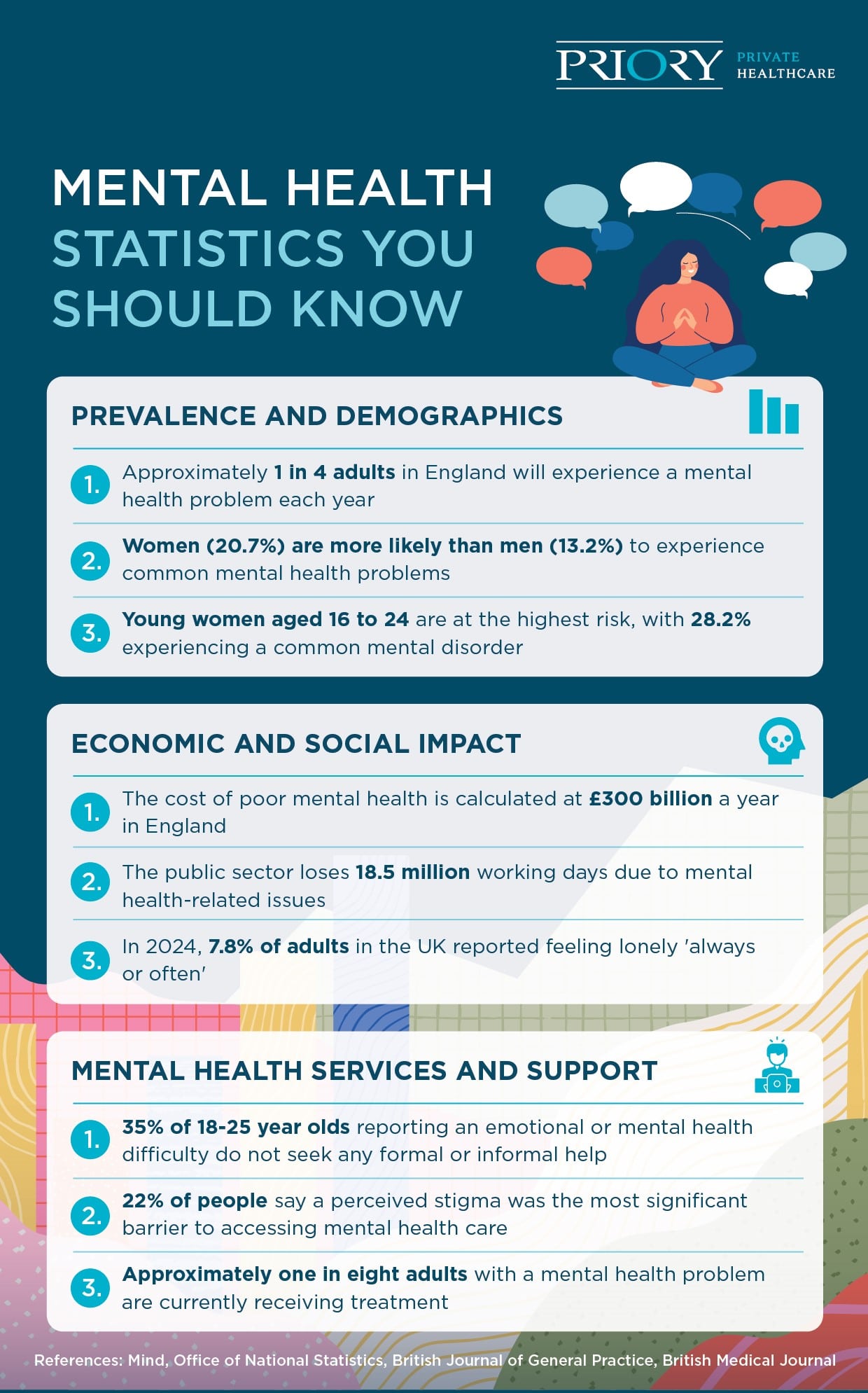Mental health statistics UK 2025
1 in 4 adults in England will experience a mental health problem each year, and other recent mental health facts and statistics.
Our understanding of mental health, and how it affects our lives, is developing all the time. As part of improving your understanding of how many people struggle with mental health issues and specific disorders, it's a good idea to familiarise yourself with some of the latest research, facts, and statistics on the topic.
To help grow your awareness of mental health, we’ve listed some facts and figures from leading organisations in mental health and public health.
Read more depression statistics.
Read more anxiety statistics.
Read more stress statistics.

[1] Mind: Mental health facts and statistics
[2] Office for National Statistics: Mental health
[3] Mind: Facts and figures about young people and mental health
[4] Mental Health Foundation: Men and women: statistics
[5] Mind: The Big Mental Health Report
[6] Office for National Statistics: Sickness absence in the UK labour market
[8] BMJ Open
[10] WHO: Mental Health ATLAS 2020
[11] WHO: Global Strategic Direction for Mental Health
[12] Office for National Statistics: Cost of living and depression in adults, Great Britain
[13] Children's Commissioner for England
[14] PubMed